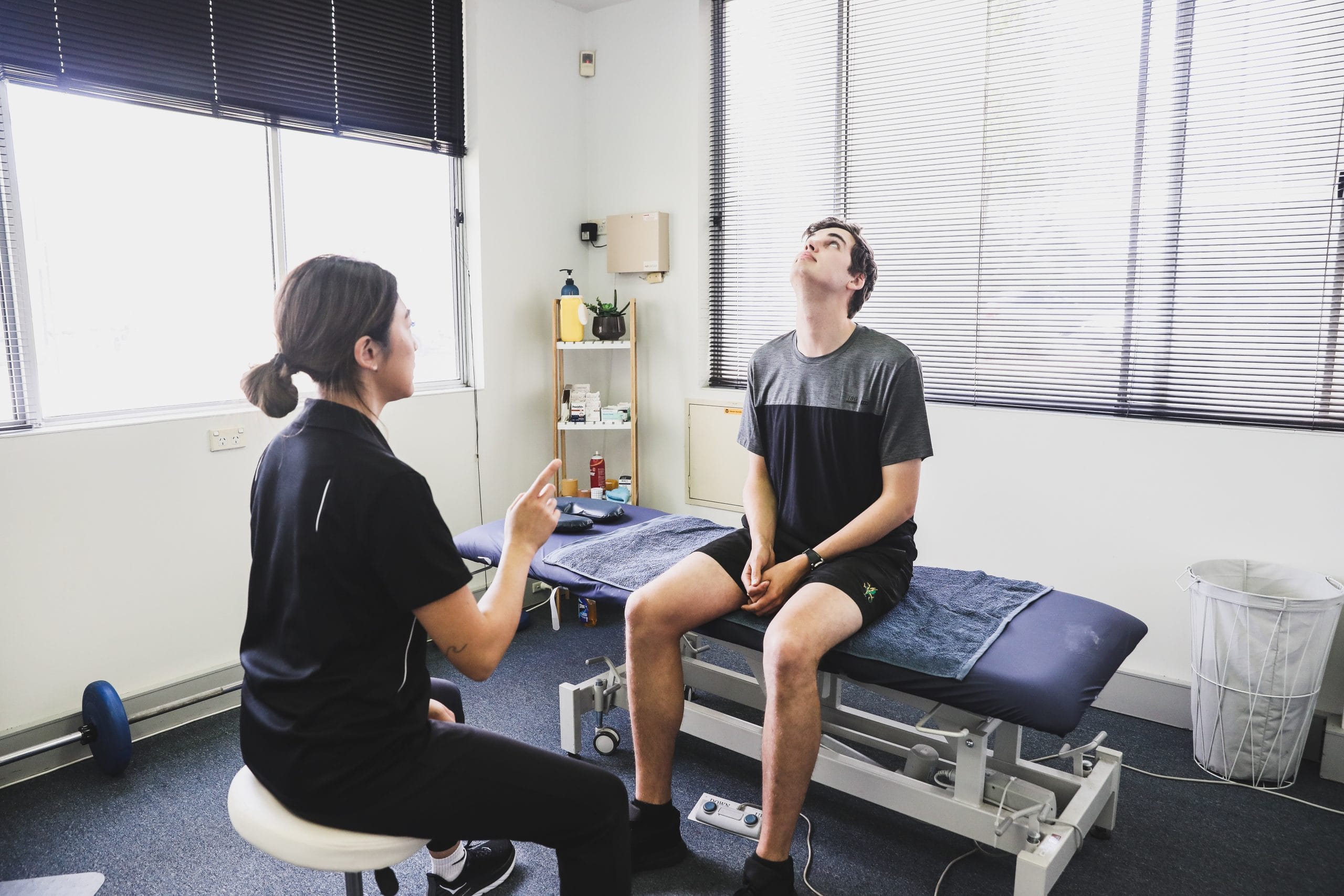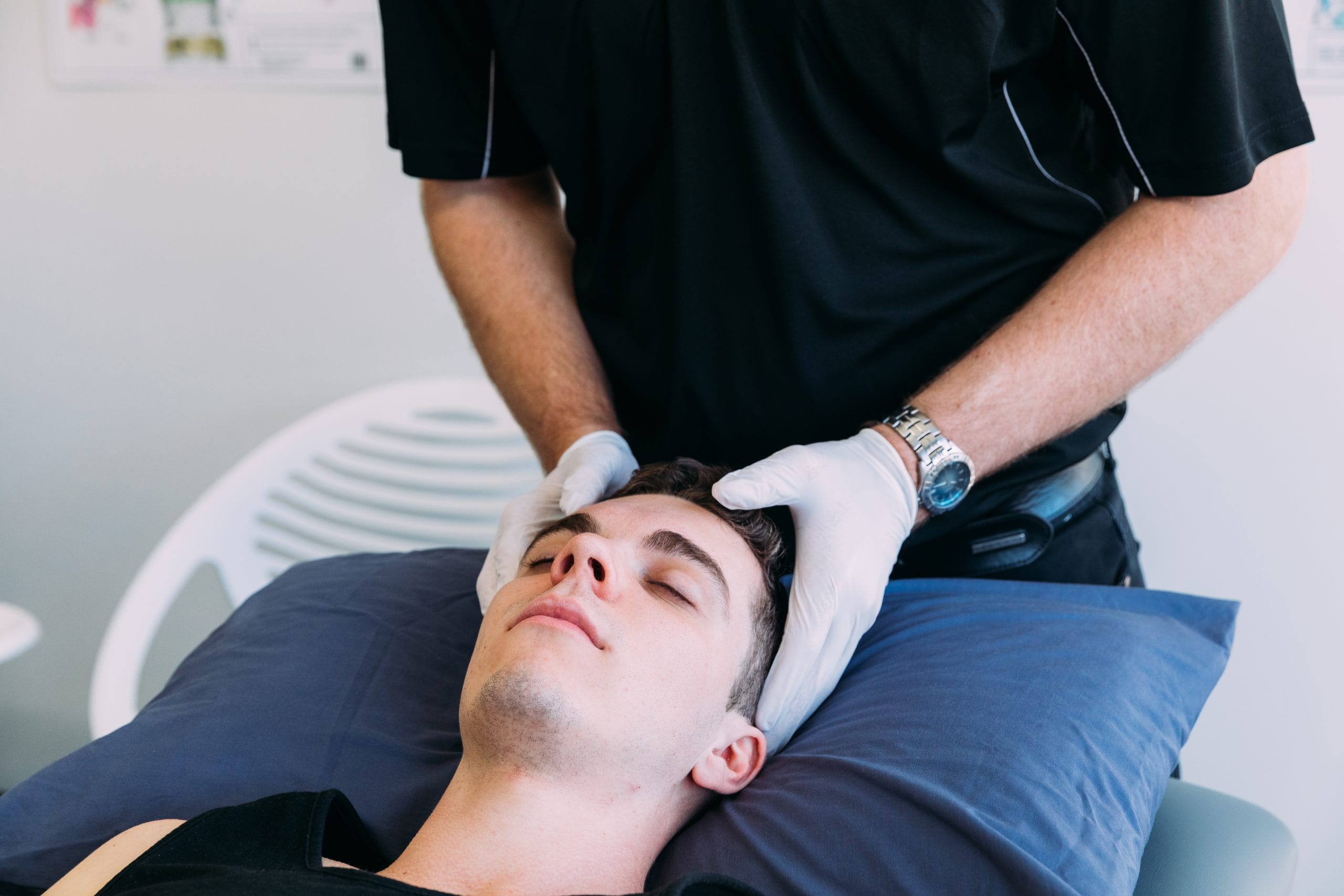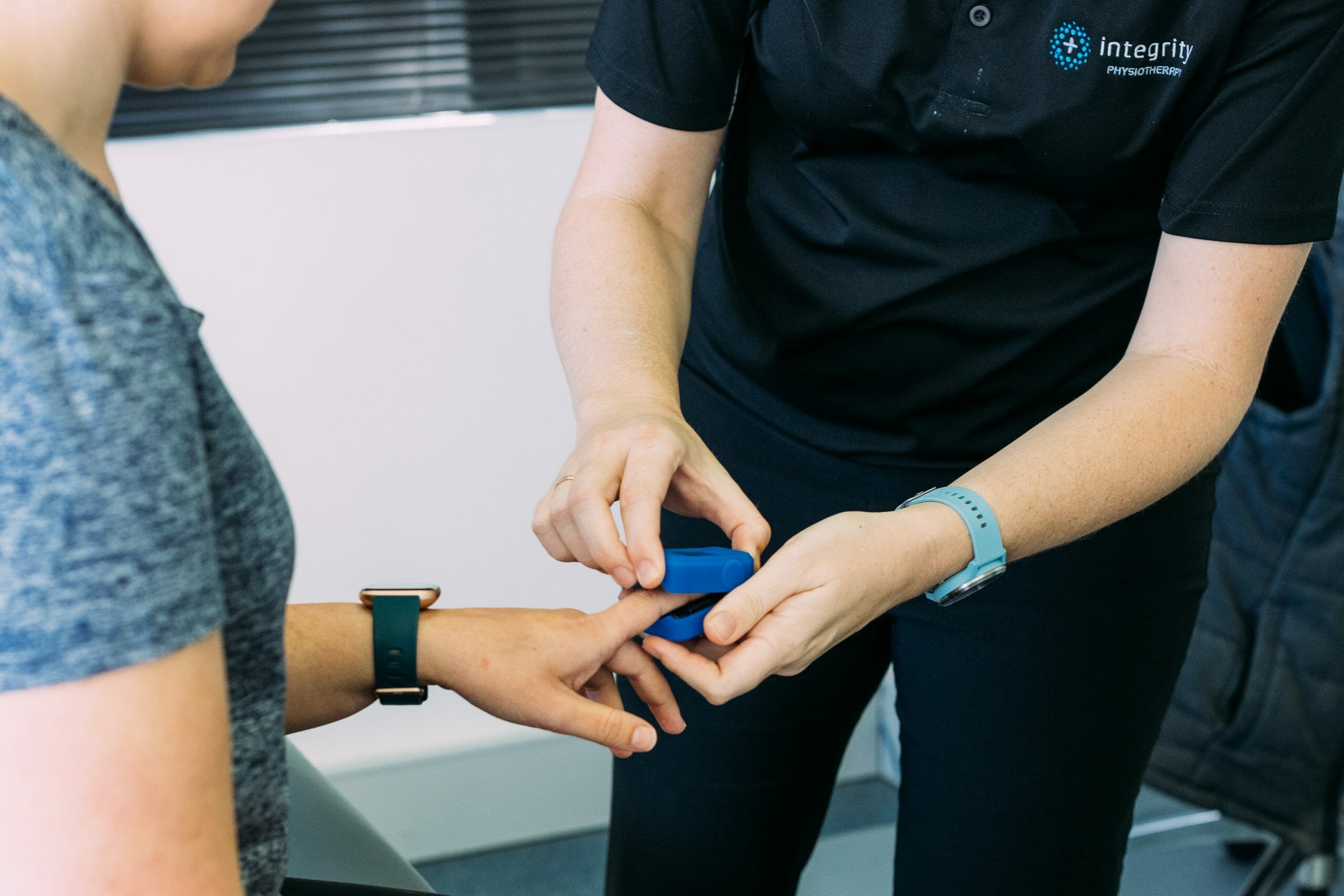
Dizziness and vertigo can have a big impact on your everyday life. If you deal with either one, you’ll know this better than anyone. Feeling like the world is spinning is never fun, but with experienced vertigo physiotherapy in Perth, you can start to regain your balance once more.
At Integrity Physio, we don’t just manage symptoms; we tackle them head-on, offering you a clear path back to stability and confidence.
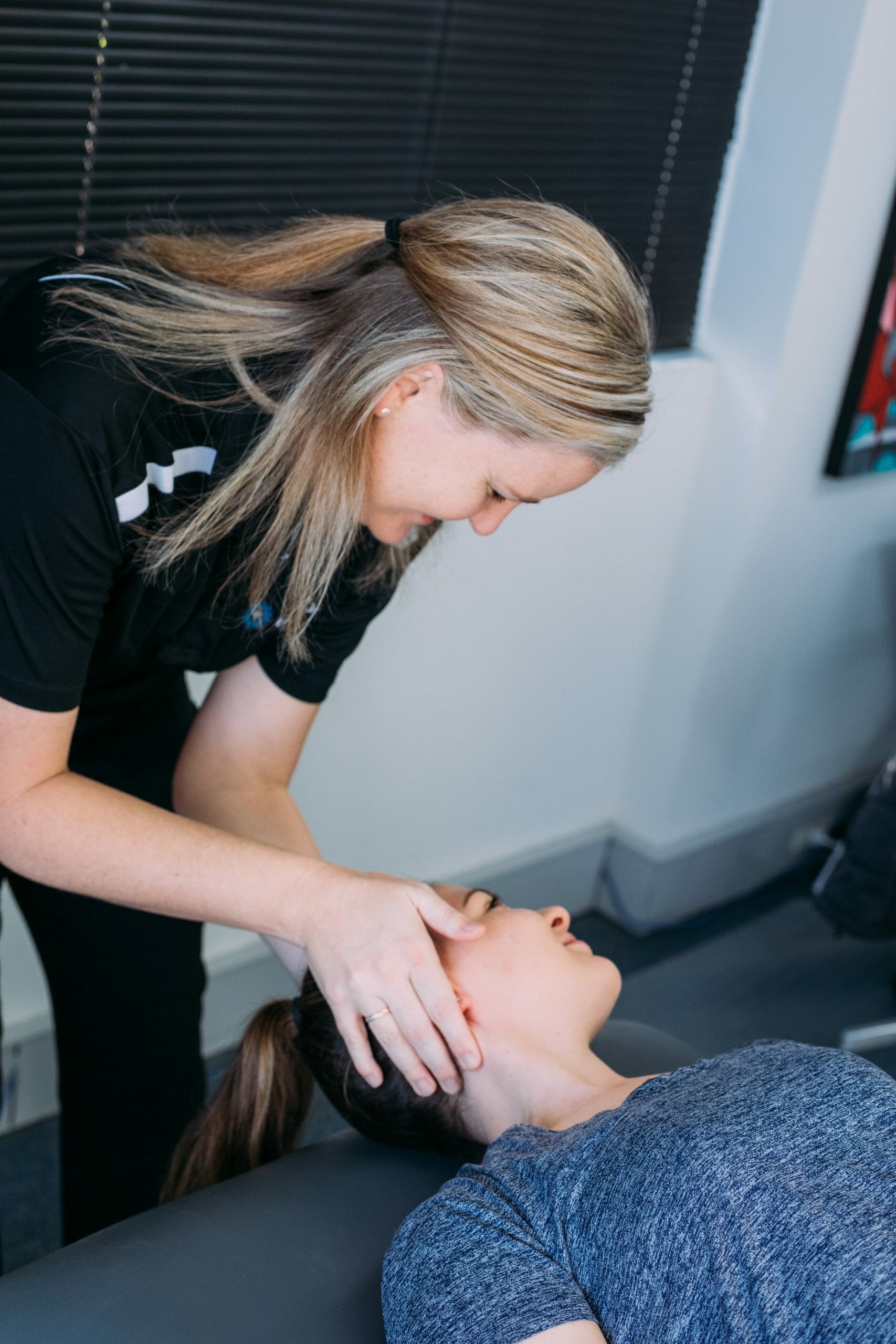
Common causes of vertigo
Benign Paroxysmal Positional Vertigo
Vertigo, one of the more commonly diagnosed vestibular disorders. It’s often the results of an inner ear problem called BPPV. This happens when small calcium particles come loose from where they’re normally held: in a fixed position in the inner ear. These particles move around where they should not be moving: in the semicircular canals.These canals control your balance and give you positional orientation. This affects signals sent from the inner ear to the brain, resulting in vestibular symptoms.
Vestibular Neuritis
Vestibular neuritis is the irritation of the inner ear and vestibular nerve. Both play a key role in carrying information from the inner ear to your brain about movement and changes in gravity. The onset can be sudden, with or without a preceding viral illness, and the initial symptoms can be so dramatic that people commonly go straight to their GP for acute management.
Physiotherapy helps once medication has managed the acute stage. Our physiotherapists will assess which part of your balance system is affected and determine if vestibular rehabilitation can help.
Vestibular rehabilitation aims to apply specific exercises to decrease dizziness, increase gaze stability, and retrain balance. It basically works to recalibrate your nervous system so that it learns to balance and stabilise itself.
Cervical Dizziness
Cervical dizziness results from stiffness and perhaps some degree of dysfunction in the upper neck. That said, some people feel dizzy without neck stiffness or pain. Either way, cervical dizziness can be addressed in physiotherapy with manual treatments to the neck and corrections for any potential underlying culprits, like ergonomic dysfunctions or muscle weakness.
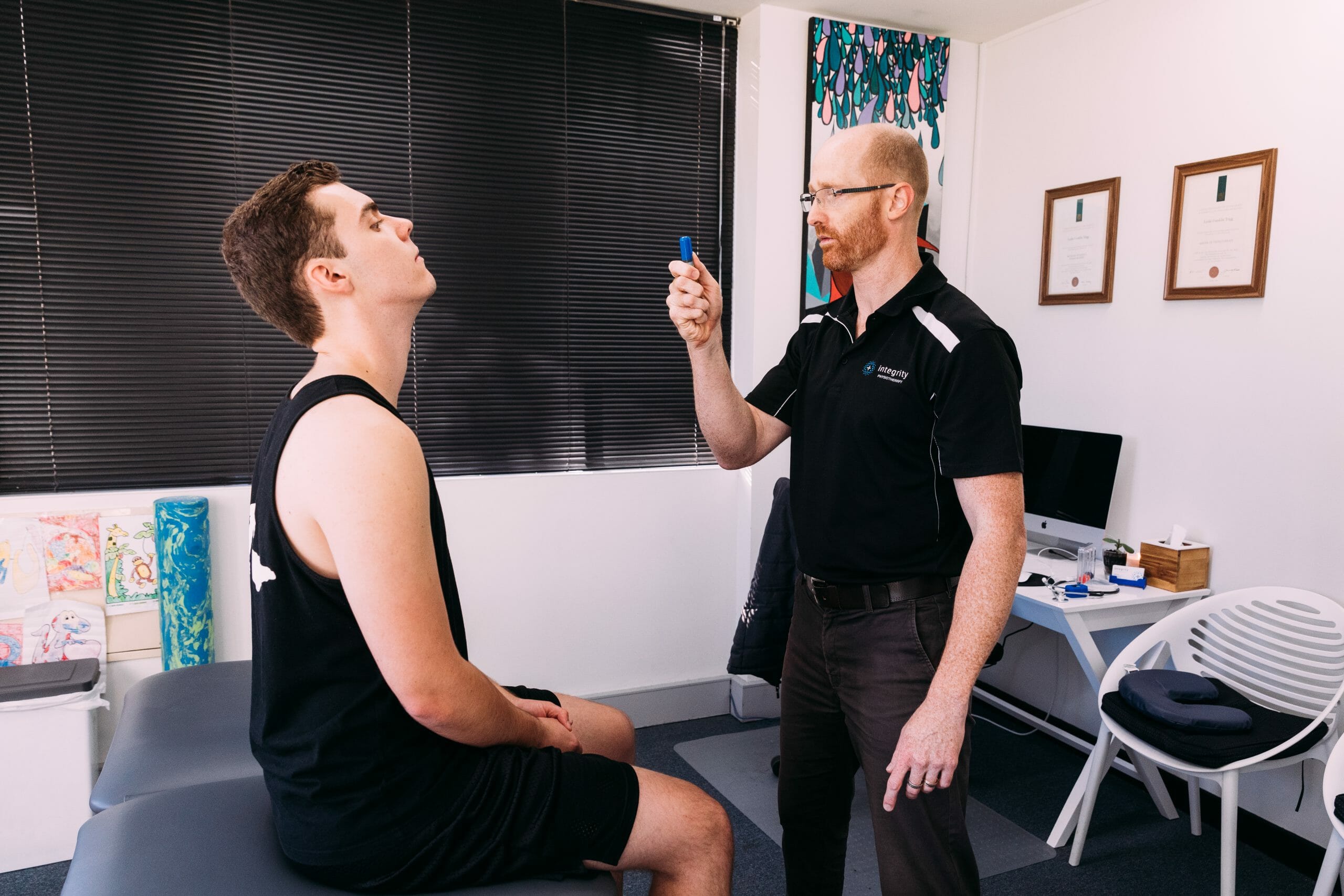
How physio for vertigo can help
If vertigo is spinning your world out of control, our experienced physiotherapy team is here to help set things right. Through personalised physio for vertigo, we aim to significantly decrease your symptoms so you can get back to feeling like yourself again.
We aim to not just reduce your symptoms, but treat the root cause of your vertigo so that you can go back to doing the things you love – without the discomfort. Whether it’s repositioning manouevres to address BPPV or custom balance exercises to strengthen your vestibular system, we’re all about treating your vertigo and body as a whole.
Our mission? To help you get back to your life, free from the dizziness and the instability that vertigo creates.
Personalised vertigo relief
Non-invasive physio for vertigo can go a long way to reducing or eliminating your symptoms. With the support of our physios, you can work to:
- Improve balance
- Gain stability
- Increase safety
- Reduce your risk of falling
- Get back to regular daily activities with confidence
Frequently asked questions about vertigo
The symptoms of vertigo or dizziness can vary, however, some of the most common symptoms include:
- A spinning or swaying feeling
- Feeling unbalanced
- Light headedness
- Feeling faint
- Nausea
- Ringing in the ears
- Headaches or vestibular migraines
- Sweating
- Loss of coordination
We perform assessment techniques to diagnose vertigo and determine the root cause. These might include:
Other causes of vertigo include:
- Infections
- Head injuries
- Stroke
- Inner ear disorders
- Low blood pressure
- Low blood sugar
- Degeneration of the inner ear structures
- Circulation problems
Physiotherapists are trained to rule out highly destructive disorders and other sinister causes of dizziness. They do this by employing a series of screening questions and a thorough clinical assessment. If concerns of a structural nature arise, your Perth physiotherapist will refer you for further investigations such as medical imaging.
Vestibular physiotherapy helps with balance and dizziness problems related to the vestibular system. Using different techniques, manual therapies, and home exercises, we tailor treatment to each vestibular disorder to ensure we're addressing the root cause.
Our physios can treat vertigo through exercises and/or manoeuvres designed to:
- Reposition crystals in your inner ear (BPPV)
- Improve balance
- Improve the function of your vestibular system
- Reduce symptoms of dizziness
We develop a treatment plan tailored to your needs and the root cause of your vertigo. Some of the potential vestibular rehabilitation therapies include:
- Canalith repositioning exercises are head movements used in physical therapy to treat BPPV by removing inner ear crystals.
- Balance exercises – to retrain the vestibular system
- Medication – such as migraine or anti-nausea medication
- Cognitive behaviour therapy – when anxiety is a factor
- Manual therapy and exercise for the head and neck in the case of cervicogenic vertigo
We can help you with:
- BPPV
- Vestibular neuritis
- Labyrinthitis
- And more
Recovery time will vary from patient to patient and may also depend on the cause. There are a number of factors that will determine how long it will take to recover including:
- How long the symptoms have been present
- The severity of the symptoms
- How often you perform the recovery exercises
- Any other medical problems present
While it isn’t known exactly how long it will take to recover, BPPV often improves within a week of starting treatment and vestibular neuritis often improves within 4-6 weeks. For many cases of BPPV, recovery can often be experienced within a few days or a couple of treatment sessions. For more information about vestibular therapy in Perth, contact our friendly staff who are more than happy to help.
While it can be remarkably effective for many, vestibular physiotherapy may not be for everyone. A qualified physiotherapist with an understanding of vertigo and related dizziness issues must provide a comprehensive examination to create the most appropriate plan for you.
Wear comfy clothing, bring a list of your symptoms and any medical history you feel is relevant, and be prepared to talk about how your vertigo symptoms impact your daily activities.
You might experience some temporary side effects, like increased dizziness during or after exercise, and some slight discomfort if you do begin to feel dizzy. A little nausea is possible, too. That said, these should be short-lived, and most feel much better after their treatments!
Likely! Illnesses that cause vertigo aren't things that you can really control, but the right physio can significantly reduce the number of episodes you will have; many find with greater awareness of their presentation that they no longer need regular vertigo physio. The exercises we give you to do at home can be used for years to come, regardless of whether you are coming for regular appointments.
The inner ear monitors your head movement and its position. The inner ear is made up of five sensory organs; two otolith organs and three semicircular canals filled with fluid. As the head moves, the fluid inside the canals moves, telling the brain the direction of the movement including how far and how fast. The brain uses this information to coordinate the movements of your eyes, neck and head to maintain your balance.


